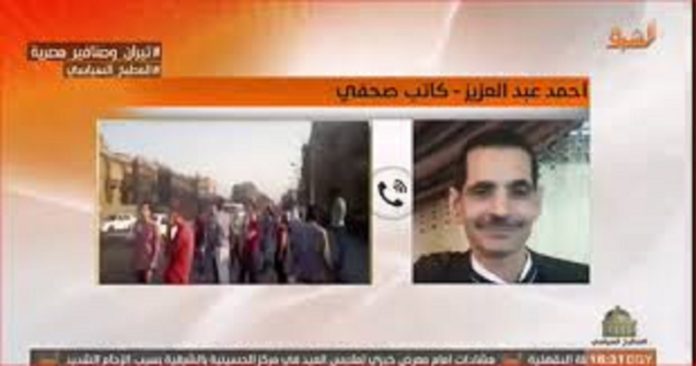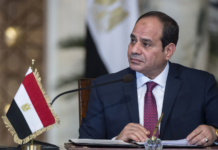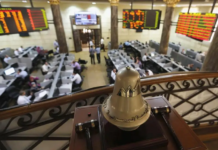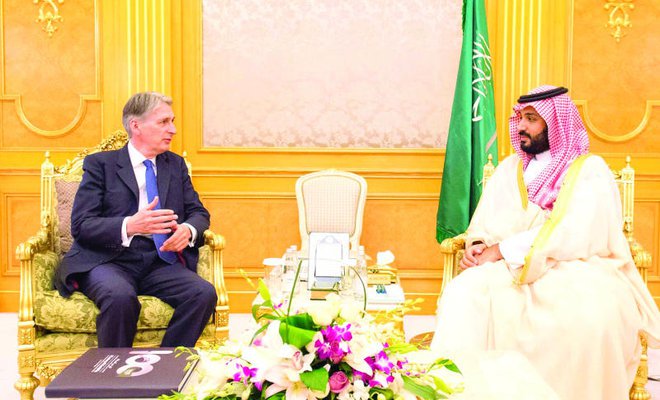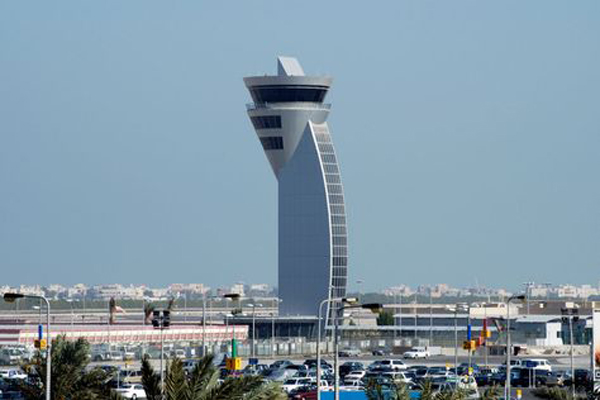Moaataz Matar reveals Al-Chark’s involvement in promoting fabricated news.
The Supreme State Security Prosecution decided to detain Hossam Al-Suweifi and Ahmed Abdel Aziz, 15 days pending investigations, as members of the information Committee and Electronic Unit of the terrorist organisation, the Muslim Brotherhood. The detainees are charged with communicating with the Brotherhood media platforms to publish false, fake and fabricated news about the political and economic situation in Egypt, ridiculing the Egyptian state and its institutions to create a state of frustration and pessimism among the masses of the Egyptian people, thus disrupting public peace in order to achieve the goal of the terrorist organisation in over-throwing the state’s legislative authority. Moataz Matar acknowledged on-air over his programme on Al-Chark Channel (Funded by The Muslim Brotherhood), in his Episode that was broadcasted on Monday 11/12 that he cooperated with Ahmed Abdel Aziz to attack Egypt’s Syndicate of Journalists and the Egyptian State.
According to J.K. Iglehart’s article, “The Role of Media in Reporting and Shaping Public Expectations,” the media is the most influential tool in the world’s current setup. Research reveals that the masses trust different types of media as their main source of information. Over time, readers do develop the mindset that anything the media says is right. The root cause of fake news spreading widely and quickly is a lack of understanding. Many people are unable to discern authentic news from fake news, and those with vested interests are exploiting the situation. Yet, fake news can have a far-reaching impact especially when travelling via international media, and reported by respected and widely distributed media channels. The constant negative reporting of a worsening economic status by the media inflated by international media reporting in other parts of the world, generates pessimism thus influencing their readers mindset. Mislead readers imitate writers roles and blindly repeat what they’ve heard as facts. This blind imitation transferred through word of mouth has an immediate and negative impact on decision making and therefore negative repercussions on the economy.
Accordingly, if the media portrays the economy as getting worse , people will be reluctant to spend their money, therefore a recession or even a depression could occur. The media’s tone upon reporting economic news affects consumers’ and investors attitudes towards spending, which in turn affects economic fundamentals such as employment, growth, and the stock market. Though the media doesn’t affect the stock market entirely, it does have the power to disturb it significantly. It can indirectly impact the economy’s medium term investments, which includes the country’s bonds with maturity dates between three and 10 years and in doing so it undermines investors confidence. On the other hand, the psychological ramifications lie in changing people’s outlooks towards the country and accordingly directly affects the tourism sector. Pessimism undoubtedly impacts people’s psychological will to produce, work and innovate; which in my opinion is the worst impact of fake news on the economy.
Since Al-Jazeera released the famous fabricated tape of “Egyptians killed by security forces” that turned out to be fake, Egypt has, over the past few years, been a victim of false, fake and fabricated news.
Over the past few years, the cycle of fake news, supported by funding sources has changed its scope to cover various aspects. It has tackled the legitimacy of president Abd El-Fattah El-Sisi, totally oblivious to the the fact that the 30th of June revolution is one of the most mass supported revolutions ever, they ridiculously even question that it actually took place. They further attack Egypt’s national security authorities and its application of force against terrorism by calling for human rights, disregarding the fact that when it comes to national security, the whole world gives priority to combating terrorism.
In recent years, fake and fabricated news’ favourite topic has been the country’s economic progress, this at a time when Egypt is taking major leaps in its economic reform plans. Yet, as usual, fake news totally overlooked all economic indicators that confirm we are proceeding in the right direction. The decision taken by Egypt to float the currency, came with an agenda for economic reform and development, such an agenda calls for an industrial revival towards maximising production and exports to gain from the current competitiveness in pricing. It further calls for a serious modification to Egyptians spending habits to match their incomes, and to match it in accordance to real prices rather than subsidised prices that have for years weighed upon the shoulders of past generations in their path towards economic prosperity. It targets innovation, development of SMEs and integrating youth into building for Egypt’s future.
The internet has grown to be a giant, one that needs to be controlled , it is used in business and leisure. Yet, identifying sources of information as authentic and certified is essential again in business and leisure. A prime example of this is Wikipedia. Anyone can change a Wikipedia article to make it say whatever the editor wants it to, yet today a lot of people rely on Wikipedia as an authentic source of information. I sincerely hope that everyone using the Internet’s Social media would use it responsibly by not forwarding unconfirmed information from unidentified sources. I often feel like screaming out to all users “Bring positive energy rather than polluting the environment with negativity”.


